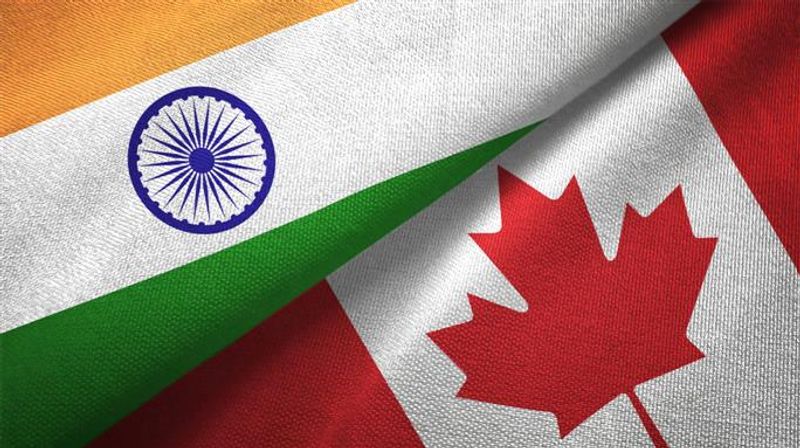“Is it Tim Hortons or Taj Mahal Hortons? When you walk into a store, the smell of the body odour is so bad, you can taste it. It should be renamed Red Turban Coffee.”Wondering what all this is?Well, these are some of the comments posted on a video on X that talked about the decline in services and quality at Canada’s popular coffee shop, Tim Hortons, due to its staff, which primarily comprises of temporary foreign workers and international students, particularly of Indian decent.The video posted last week, amassed over 1,67,000 views and 1,300 retweets, amplifying the hateful rhetoric. This video, like many others showing people of Indian decent in a derogatory manner, highlights the recent surge in online hate against the Indian community in Canada.If data available on the internet is to be believed, between May 2023 and April 2025, over 26,600 posts on X contained offensive slurs against South Asians in Canada, marking a staggering 1,350 per cent rise from the previous year. The common narratives on these posts include the ‘Great Replacement Theory’ – a far-right conspiracy claiming that South Asian immigrants are ‘invading’ Canada and ‘replacing’ the whites. Unfortunately, such rhetoric is fuelling fear and normalising hatred.“I had never thought that Canada, known for its multicultural fabric, would ever become a country where we Indians would be the subject of such hate,” said Gurinder, a businessman who migrated 20 years ago.He said though he hasn’t faced blatant discrimination himself, he has often seen many “white Canadians” making funny faces and sarcastically murmuring at Indian servers at fast food joints.Raman, another immigrant from India, said a couple of years back, while he was walking in a residential park, some kids on a bike yelled at him to go back to his country. “Those boys themselves looked children of middle eastern immigrants and perhaps didn’t know what they were saying”, he said.Ask any South Asian and they would reveal that in recent years, Canada has witnessed a disturbing surge in online hate targeting people from specific communities. This phenomenon is mainly driven by a complex interplay of socioeconomic tensions, anti-immigrant sentiments, and geopolitical factors.Social media platforms like TikTok and Instagram have become tools for spreading racism. In December 2024, a TikTok video falsely accusing Indian immigrants of defecating on a public beach in Wasaga went viral. The post, which turned out to be fake, garnered lot of attention and was accompanied by derogatory comments targeting Sikhs, Punjabis and international students. Later, a sketch of a turbaned Sikh defecating with a caption “poop and scoop”, was posted on social media and that too went viral with lots of racist comments.In October 2024, Ashwin Annamalai, a Canadian of Indian origin, recorded a racially charged altercation in Waterloo, Ontario, where a woman hurled xenophobic remarks at him. The video, viewed over a million times, highlighted the normalcy of such encounters. Incidentally, Waterloo, an otherwise educational hub, notably reported the highest rate of police-documented hate crimes in Canada that year.According to available data, hate crimes against South Asians have also surged by 143 per cent from 2019 to 2022, and over 200 per cent by 2023. While the data does not give a breakup of communities, these figures place South Asians among the most targeted groups in Canada.Canada’s housing and economic crisis, rising unemployment and sky rocketing living costs have fuelled resentment towards immigrants, with Indian international students and Indians often becoming the scapegoats. The resurgence of far-right ideologies, propagating the Great Replacement Theory, has been instrumental in spreading hate and political decisions, such as capping international student permits and lowering immigration targets, have inadvertently legitimized anti-immigrant attitudes, framing newcomers as threats to white Canadians.The unregulated nature of social media platforms allows hate speech to flourish, making it more socially acceptable. The Institute for Strategic Dialogue, a UK-based think tank and non-profit organisation that focusses on countering extremism, hate, and disinformation, reported over 1.2 million engagements with anti-South Asian slurs within just two months of March and April this year.This ongoing online toxicity needs to be countered before it does more damage to inter-community relations in Canada, which is also known as a land of immigrants with every fourth person (23 per cent) being an immigrant.The rising tide of online hate is a wake-up call. It’s time to act before the digital poison irreparably damages the very fabric of Canadian society.This problem extends beyond the digital realm, affecting the daily lives of numerous Canadians. Addressing this touchy issue demands joint action from policymakers, social media platforms, community groups, and individuals. By taking proactive steps, Canada can continue to champion its core values of diversity, inclusion, and mutual respect.
previous post


